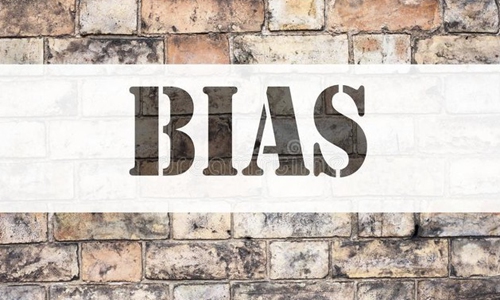Pulitzer Prize won't alter Western media’s bias
Source:Global Times Published: 2020/5/7 21:39:33

Photo: IC
The winners of the 2020 Pulitzer Prize were announced Monday afternoon.
The Pulitzer Prize in journalism, traditionally considered the field's most prestigious honor in the US since its 1917 launch, seems to have lost its aura this year after it awarded one-sided stories and biased representations: such as Reuters' photographic accounts of Hong Kong's turmoil in 2019, and The New York Times' report on Russian politics.
Awarding reports which deviated from basic journalistic principles leave many concerned that the Pulitzer Prize further encourages US journalists to cater to an inherent US ideological bias against other countries with different political systems and social values.
The awarded reports usually criticize the mainstream system through investigating and exposing corruption and abuse of power. Such an orientation is sometimes commendable, especially if it has a positive impact for driving social improvements. But when it comes to journalism for complex issues such as the Hong Kong riots, it can easily stray from basic principles of neutrality and objectivity.
Obviously, the coverage of Hong Kong riots in Western media is one-sided and not consistent with the facts. Western coverage only reveals a single perspective of the facts at best. For instance, the violence of the protesters which caused injury and death to many innocent Hong Kong people has been intentionally soft-pedalled, even neglected. Their usual trick is to focus on the negative side and blind themselves to the other perspectives. This certainly undermines the objectivity, impartiality, and authenticity of their news reports.
If the riots had taken place in Paris and London or New York, the rhetoric and narrative of the coverage would have been very different. Double standards have become more common in Western media in recent years, even through Western journalists are unwilling to admit to it -- especially when they attempt to demonize China by glorifying the crimes and violence of radical protesters in Hong Kong.
In the pride and prejudice of Western journalism, it is easy to understand why Reuters and The New York Times won awards for their coverage of China and Russian government.
The 2020 Pulitzer Prize for International Reporting awarded The New York Times for "a set of enthralling stories, reported at great risk, exposing the predations of Vladimir Putin's regime," but was quickly admonished by the Russian Embassy in the US. Russia called the coverage a, "collection of undiluted Russophobic fabrications that can be studied as a guide for creating false facts."
For both China and Russia, the Pulitzer Prize seems increasingly to encourage reporting that focuses on challenging their political systems.
The mainstream media in each country has its own political standards, and it is normal for some Western media who always target countries such as China, Russia, Iran, and Venezuela with very biased lenses.
If we review the Western media's limited role in holding their governments accountable for the botched coronavirus responses, Western media's supervisory role as a watchdog has become weaker than before and some outlets are losing their credibility. They are also playing a smaller role in criticizing and supervising the governments. This year's Pulitzer Prize batch fails to save them. Western media are reaping their own consequences.
The article was compiled by Global Times reporter Hu Yuwei based on an interview with Xin Qiang, deputy director of the Center for American Studies at Fudan University in Shanghai. opinion@globaltimes.com.cn
Posted in: VIEWPOINT